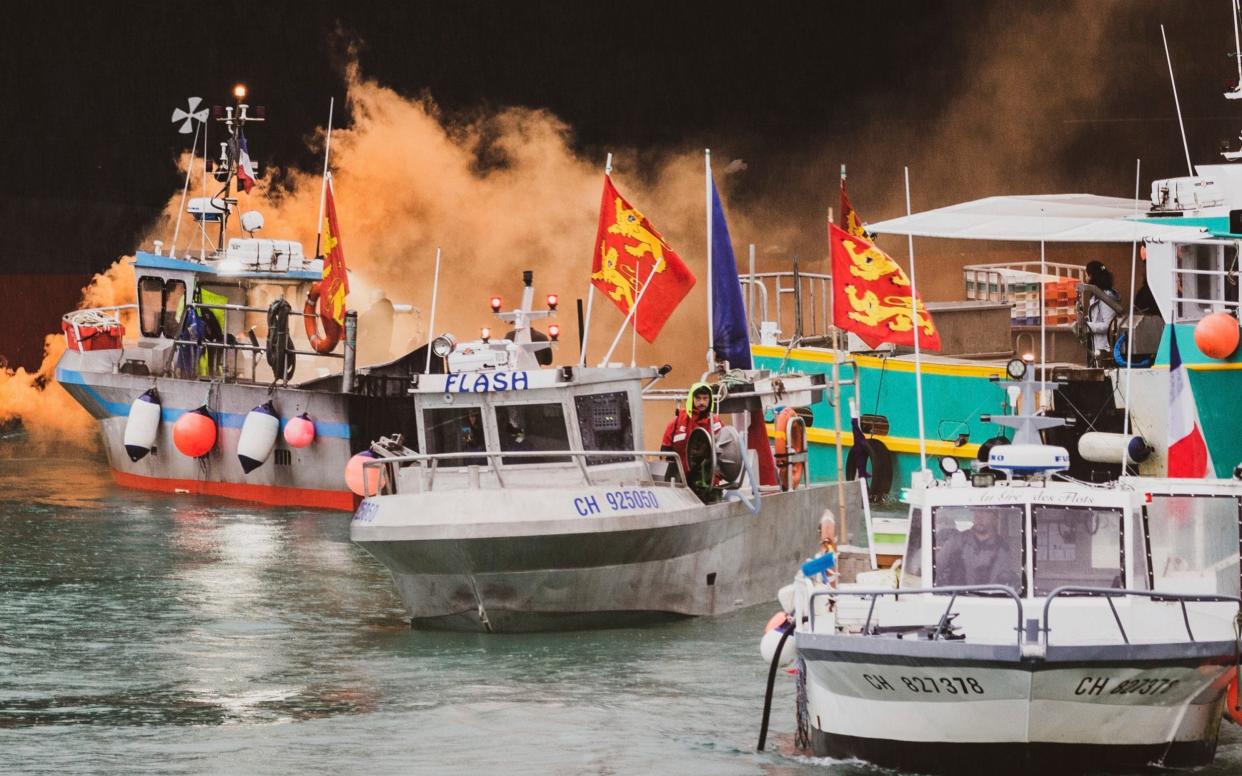How do you solve a problem like post-Brexit fishing licences for French boats?

- Oops!Something went wrong.Please try again later.
That question seemed particularly pressing on Thursday. British and French gunboats circled the waters round a blockaded Jersey in one of the most dramatic escalations in UK-EU relations since the time Ursula von der Leyen threatened to impose a hard border on the island of Ireland.
Do take a moment to review our extensive coverage of the “war on France” from our teams in London, Jersey, Europe, including my analysis on how and why it came to this here.
Particularly unmissable is this dispatch from Henry Samuel, our France correspondent who embedded himself with the fleet of French fishermen blockading Jersey's largest port.
The row erupted after Jersey imposed extra conditions on post-Brexit fishing licences for its territorial waters.
France and the European Commission says this is a breach of the Brexit trade deal but the UK believes the Channel Island is within its rights in the agreement.
Negotiations will be held to try and hammer out a solution to the impasse, which is not the first clash over fishing licences between the UK and EU.
In late April, French fishermen blockaded UK-landed catch from being imported into Europe after accusing Britain of dragging its feet in granting licences to fish in the UK’s territorial waters.
Under the terms of the UK-EU Trade and Cooperation Agreement, EU boats are entitled to fish within the 12-mile limit from the coast if they can prove historical fishing activity in those waters.
Larger boats in the Channel have electrical equipment that makes it easy for them to prove they fished UK waters from 2012 to 2016 but smaller boats don’t typically have the technology.
This issue, which is also a problem in the Jersey dispute, is under discussion by UK and EU negotiators.
Gaining control of access to UK waters was a major negotiating goal for Britain in the Brexit talks, which rules out simply just taking the fishermen’s word for it.
Brussels’ negotiators have taken a leaf out of the UK playbook and urged Britain to be “pragmatic”.
Officials are hoping to agree a method by which the smaller boats can provide evidence of previous fishing.
One possible compromise is being mooted. Even small boats have to log their catch. It is thought it could be possible to cross-reference a catch with fishing zones set by the International Council for the Exploration of the Sea (ICES).
These ICES zones are internationally agreed and divide up the world’s oceans. Logged catches in zones close to UK territorial waters could be taken as proof of historical fishing activity for smaller EU boats.
That could bring the breakthrough and significantly calm tensions with Paris and Brussels but only if the UK and EU can agree on a joint methodology for running the system.
It may lack the drama of Thursday’s fireworks at the Jersey blockade.
But it is the kind of dull, technical negotiation that will prove pivotal in solving the teething problems in the new Brexit trade deal that look certain to continue emerging for some time yet.
This article is an extract from The Telegraph’s Beyond Brexit Bulletin newsletter. Sign up here to get exclusive insight from the UK’s leading commentators James Crisp, Christopher Hope, Dia Chakravarty and more – delivered direct to your inbox every Tuesday and Thursday.

